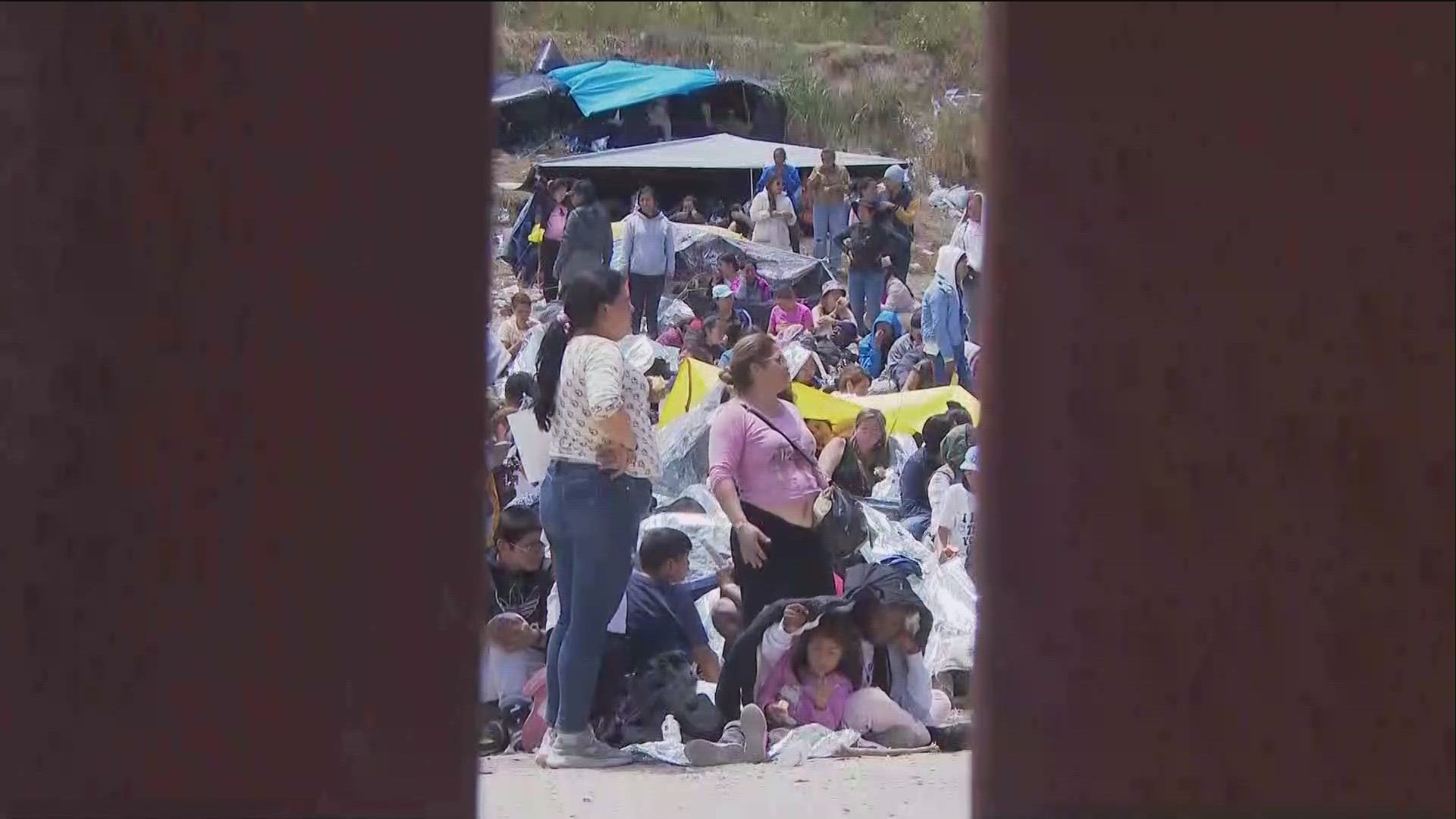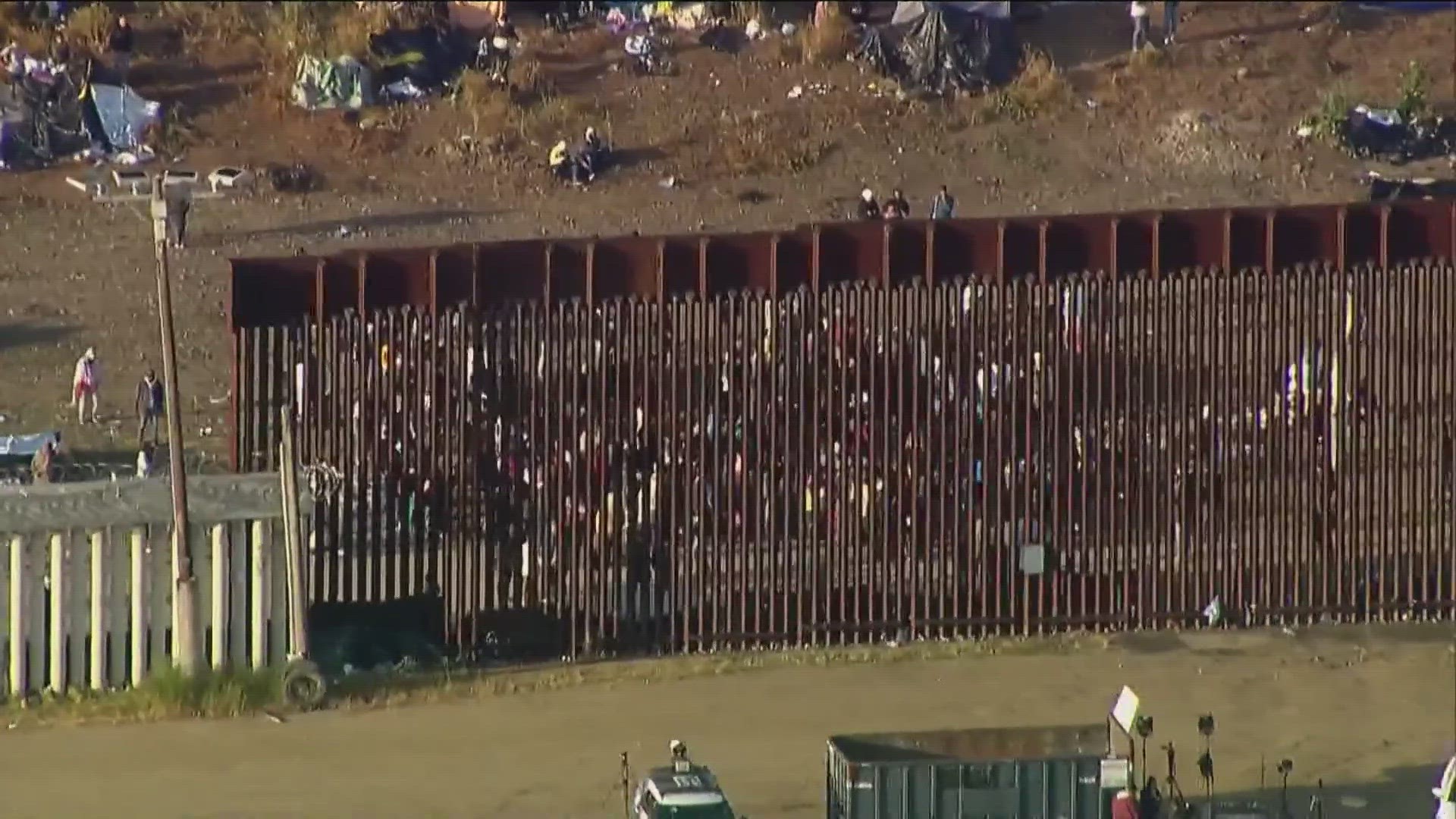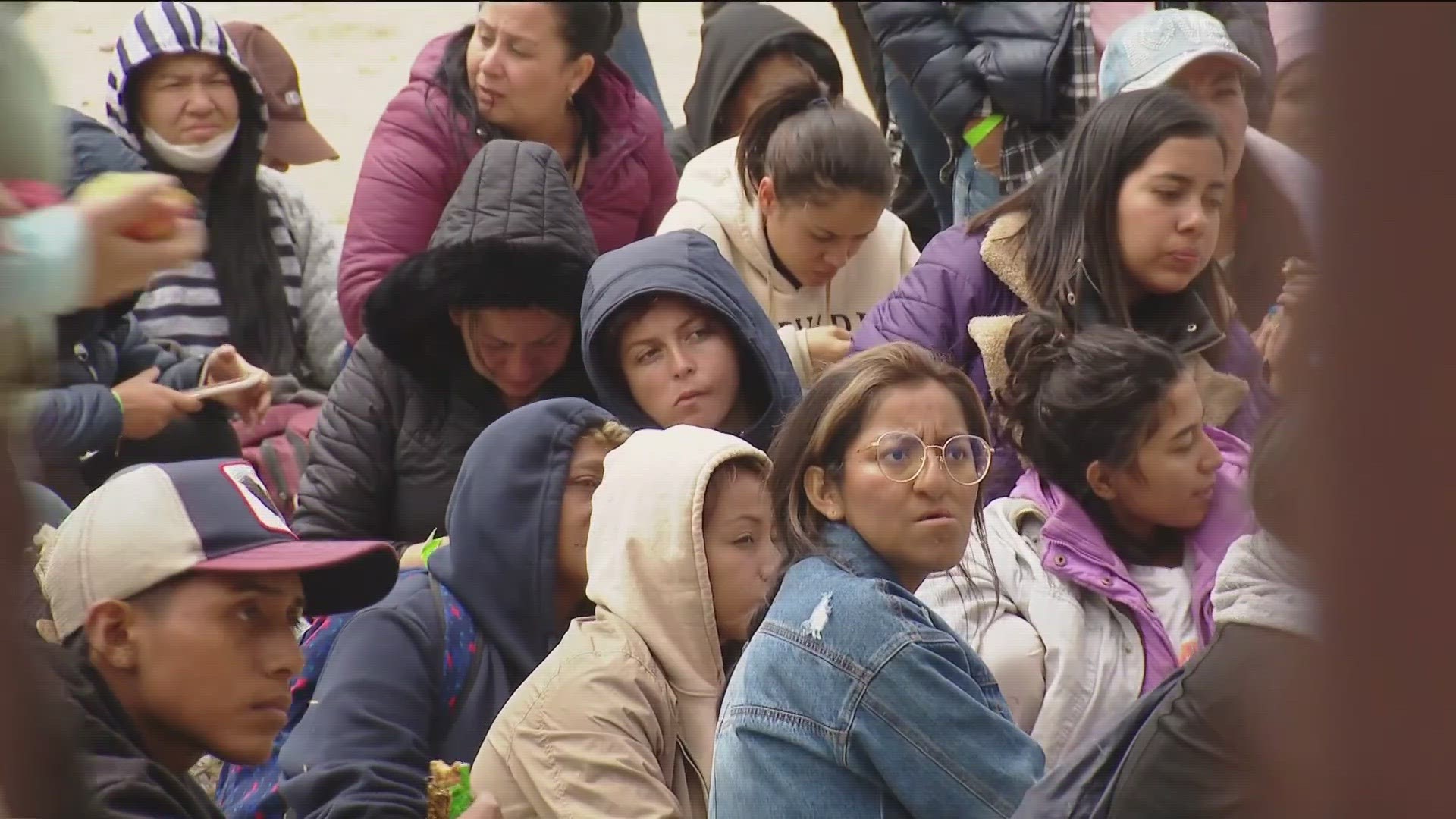SAN DIEGO — The number of migrants at the U.S.-Mexico border is increasing by the hundreds, adding to the thousands already there as the expiration of Title 42 nears.
The pandemic-era restriction ends at 8:59 p.m. Thursday on the West Coast.
CBS 8 was at the border to usher in the final day of Title 42 and talking to migrants who are awaiting their chance at asylum.
CBS 8's Neda Iranpour spoke to County Supervisor Jim Desmond about the impacts that Titls 42's expiration may have on San Diego County.
WATCH: CBS 8 speaks to San Diego County Supervisor Jim Desmond on impacts from end of Title 42:
Meanwhile, our CBS 8 crews reported Wednesday that some of the activity seen at the border includes many volunteers from San Diego organizations bringing food, water, and baby supplies to those at the border. Migrants are also asking media and volunteers to charge their phones. Makeshift tents are seen at the border. Some of the tents are garbage bags tied to the wall. CBS 8 has been told there is one unusable porta-potty toilet.
Thousands of migrants are coming to the border, hoping they will be granted asylum. For many of them, though, that will not be the case. In the years leading up to Title 42, more than half of all migrants seeking asylum in the United States were ultimately denied.
WATCH: Migrants had expected to start the asylum process when arriving at border, but instead are stuck:
During the last year of the Obama administration, in 2016, asylum claims were rejected nearly 55% of the time, according to the nonpartisan data research center TRAC. That climbed to nearly 74% in 2020 after Title 42 began.
This week, Mexico announced that it would agree to accept 30,000 migrants per month from Cuba, Haiti, Nicaragua, and Venezuela who are denied entry here in the United States.
WATCH: Migrants prepare for what asylum may look like from in between the U.S.-Mexico border wall
The White House also said it plans to expand its family reunification program, now open to migrants from Cuba and Haiti. U.S. officials said they plan to allow roughly 100,000 migrants from El Salvador, Guatemala, and Honduras to live and work in the United States, provided they already have family living here.
Watch Related: Buses and Border Patrol seen coming and going at processing facility in Otay Mesa (May 10, 2023)
What's Title 42?
Title 42 is a public health order adopted by the Trump administration three years ago because of the COVID pandemic. It allows border agents to automatically turn away migrants without documentation at the border, even those seeking asylum.
What's Title 8?
"Title 8: Aliens and Nationality" is a section of the U.S. Code that contains all of the country's immigration laws.
Under Title 8, the Biden administration will enforce a new rule that bars some migrants from applying for asylum in the U.S. if they cross the border illegally or fail to first apply for asylum in another country.
Title 8 also includes an "expedited removal" process, which means that migrants who cannot establish a legal basis to remain in the U.S. - such as showing a credible threat of persecution in their home country - will be expelled.
Those who pass their credible threat interview will be authorized to enter the United States to continue the asylum process.
Legal analyst Dan Eaton points out that seeking asylum in the United States is difficult.
"The fact that more people will attempt to cross the border and enter this country does not mean that substantially more people will ultimately be allowed to remain in the United States after this process is completed," Eaton told CBS 8.
What happens when Title 42 ends?
Once Title 42 expires on May 11, border officials anticipate that as many as 10,000 migrants a day could cross the border: almost double the daily average just a few months ago.
Unlike Title 42, those migrants crossing the border after May 11 will at least have the opportunity to try to seek asylum in the United States under federal immigration law, known as Title 8.
"There was no asylum process under Title 42," Eaton pointed out. "They were just returned: period, hard stop."
Under Title 42, there were no consequences for repeated illegal border crossings.
Under Title 8, though, migrants who are expelled could face more serious consequences.
"An individual who is removed is subject to at least a five-year ban on admission to the United States and can face criminal prosecution for any subsequent attempt to cross the border illegally," said Homeland Security Secretary Alejandro Mayorkas.
American Friends Service Committee has volunteered at the border in San Ysidro, dispersing food to migrants. An Amazon Wishlist was also assembled with items such as blankets and snacks. Volunteers will deliver any items purchased from the wish list to migrants at the San Ysidro border.
Watch Related: Misinformation of the border process spreads amid asylum seekers (May 10, 2023)



